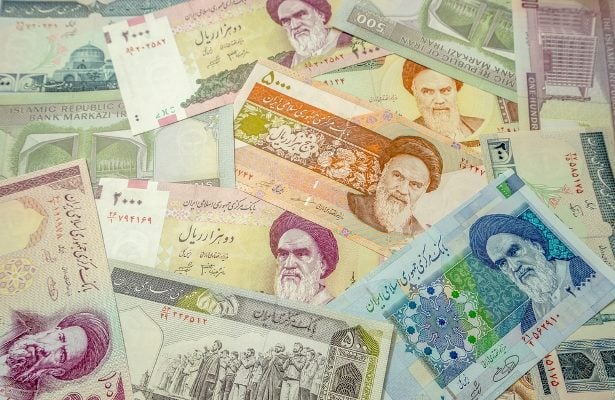Fearing the Trump administration will withdraw from the nuclear deal and renew sanctions, Iran’s currency hit an all-time low.
By: AP and World Israel News Staff
Iran moved on Tuesday to enforce a fixed exchange rate to the dollar, banning all unregulated trading after the rial, the country’s currency, hit an all-time low.
The country’s senior vice president, Eshaq Jahangiri, was quoted by state TV as saying that the official rate will be 42,000 rials to the dollar as of Tuesday. He said that trading at any other price was forbidden and would be considered “smuggling.”
The decision came late Monday after a two-day hike in prices of foreign currencies that saw the rial trading at 62,000 to the dollar — an 18 percent drop since Saturday.
In downtown Tehran, people lined up to buy hard currency outside an exchange office at the new, fixed rate, but many complained there were not enough dollars available. Some exchange offices turned off their currency display boards.
Reza Haj Esmaili, a retired government worker passing by the line, said “the country’s economic strength is dwindling away and people feel it is risky to keep their rials.”
Iran remains largely cut off from international financial networks because of US sanctions. The rial’s slide is driven in part by fears the Trump administration will withdraw from the nuclear deal between Iran and world powers in May and impose new sanctions.
The head of Iran’s central bank, Valiollah Seif, appeared before parliament Tuesday to explain his attempt to save the rial, the semi-official Fars news agency reported.
He was met with angry objections and interruptions from a group of lawmakers who briefly pushed him around on the podium and demanded his resignation.
Seif blamed price hikes on “lack of certainty” about the future and said “enemies know the issue and try to use any opportunity” to create trouble for Iran.
He also referred to “traces of plotting” by regional Arab rivals, including Saudi Arabia and the United Arab Emirates, without elaborating.
“We are in an economic war and enemies seek to create problems for our economy,” he said.
Iran has long had trouble managing its currency market. In 2012, the government tried to set an official, single rate for the currency but the attempt failed.
A photo of a one-dollar bill with a cartoon of Jahangiri, the vice president, instead of the image of George Washington, circulated on social media in Iran, making fun of the announcement of a fixed exchange rate.





